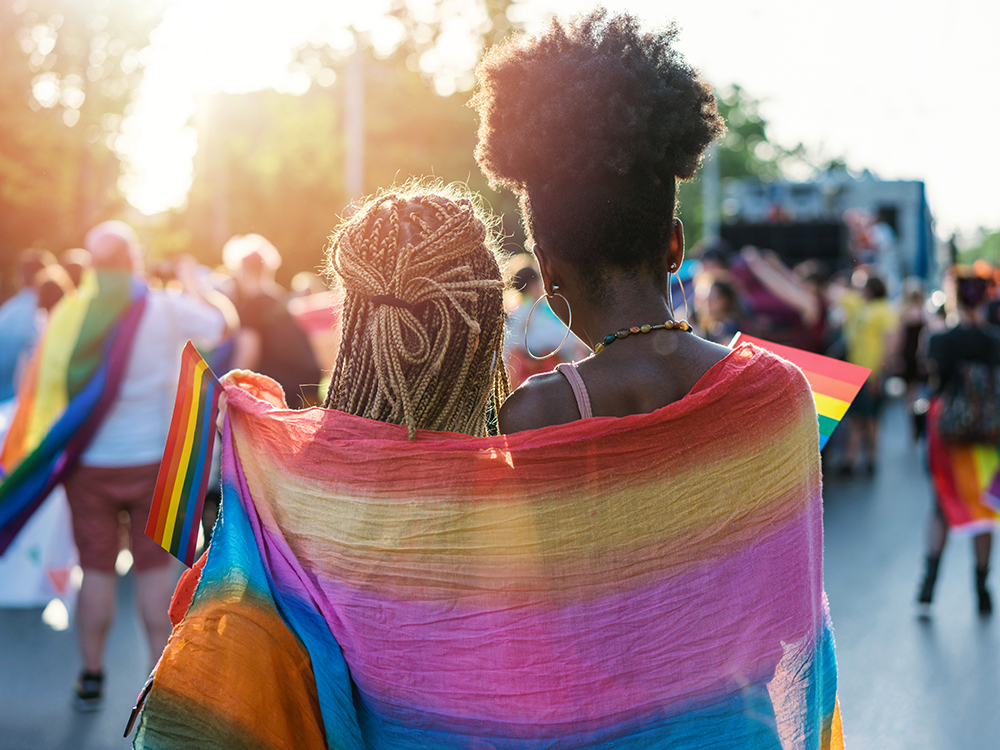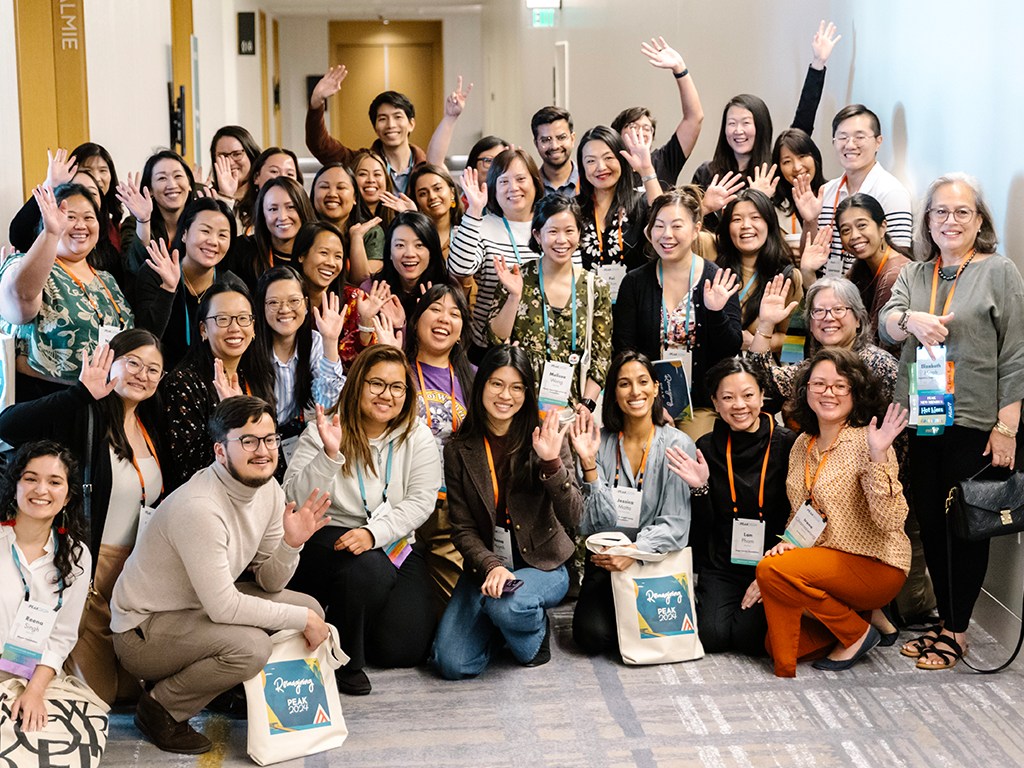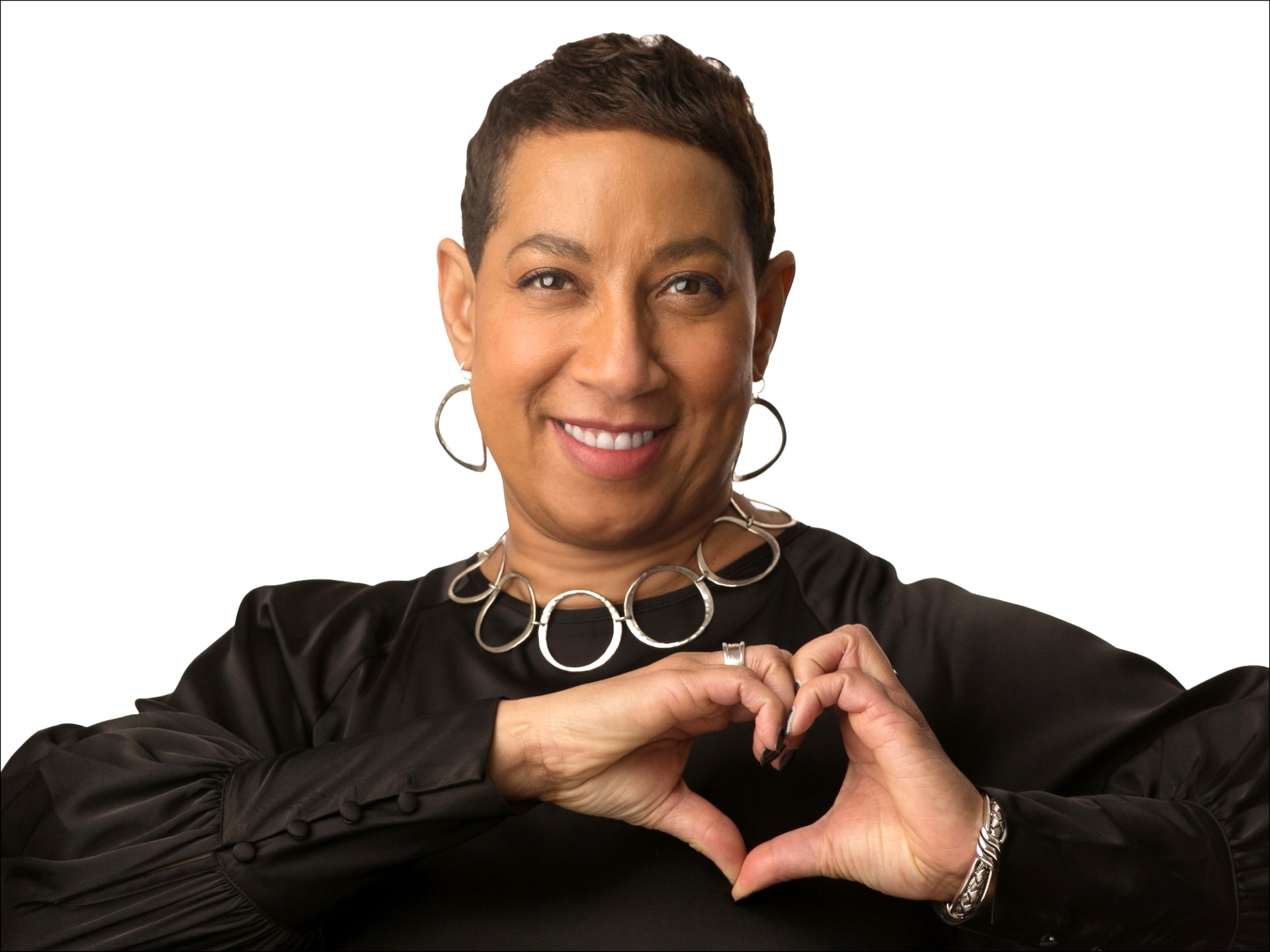A Call to Action to Fund LGBTQ+ Issues, Movements, and Organizations

For many in the LGBTQ+ community, Pride Month is a month of celebration. It is a time to reflect on the history of the LGBTQ+ movement and to authentically celebrate queer lives. It is a time of community, of belonging, of love, of joy. Unfortunately, it is also a month where queer celebrations and increased visibility can lead to more opportunities for violence.
I am a grants manager working at a private foundation that has an LGBTQ Social Justice program. Staying abreast of these issues is a part of my everyday work, and it is also a part of my everyday life. As a gay woman, my work is deeply rooted in who I am as a person and what I am passionate about. As a gay, cisgender, white woman working in philanthropy in New York City, I am also extremely aware of the privilege that my race, location, employment, and gender identity afford me. I am writing this because I made a promise to myself and others—activists specifically—that I would take this privilege and use it to start a conversation with the grantmaking community about the need for funders to be more inclusive of LGBTQ+ issues in their strategic planning and funding.
These are some of my recent experiences. I hope it can spur your thoughts into ways in which your organization can be more inclusive and accountable in the work you do, and why it is so important. Here are some steps we can take as a sector to live up to our values of equality, equity, and justice that are inclusive of LGBTQ+ bodies and movements.
Living our values of equality, equity, and justice
This is a crucial moment for philanthropy, and the lack of support for the LGBTQ+ community is deafening. Draconian laws are on the rise all over the world, including the United States and East Africa, which are brutalizing LGBTQ+ communities. For the first time in its more than 40-year history, the Human Rights Campaign in June declared a state of emergency for LGBTQ+ persons in the United States.
In April 2023, Equality Florida issued a travel advisory for those considering travel or moving to the state of Florida given the plethora of hateful anti-LGBTQ+ laws being passed. On May 28, 2023, Ugandan President Yoweri Museveni signed the Anti-Homosexuality Act 2023 into law, which calls for life imprisonment for consensual same-sex sexual acts, the death penalty for “aggravated homosexuality,” up to 20 years imprisonment for the promotion of homosexuality, and imposes an obligation on Ugandan citizens to report anyone suspected of engaging in homosexuality. The law has inspired a similar bill in Kenya and a related discussion among Tanzanian parliamentarians.
In May 2023 I had the opportunity to meet with activists from Florida and across Africa—including Uganda. I met activists who are putting their lives and their families’ lives at risk every single day to fight for the protection and basic human rights of their communities. The LGBTQ+ community is not just in danger—they are facing genocide. And I use this word because it is what Ugandans are facing—and what so many other LGBTQ+ communities may soon face. It is crucial that we be honest with ourselves, and that starts with using language that points to the seriousness of the situation.
Thoughts and learnings
Now, where does the grantmaking community come in? What are some actionable next steps to take? Below are some thoughts and learnings that I’ve taken away from recent conferences I’ve attended and discussions I’ve had with activists both domestically and abroad. I urge you to read and consider how you and your organization can better commit to supporting LGBTQ+ communities.
Reassess intersectionality in your programming and conference sessions. If you weren’t aware, PEAK Grantmaking hosted “The Critical Role of Funding Relationships in the Face of Anti-LGBTQ+ Attacks” at its annual convening. It was the first time that I personally attended a conference where LGBTQ+ issues were highlighted in a session where the conference was not dedicated to covering LGBTQ+ issues and movements or dedicated to hosting LGBTQ+ organizations. PEAK choosing this session as part of their annual conference highlights their constant effort to become even more inclusive in their work. If you are an organization that has been wanting to submit an idea for a session on LGBTQ+ funding or other issues, you should do so—and those reviewing submissions should take these submissions seriously as part of their commitment to increasing inclusiveness in funding spaces.
In terms of programming, I’ve often seen or felt that many organizations turn to othering LGBTQ+ issues—that in some way, these issues are separate from their education, public health, or other programmatic programs and are for LGBTQ+ focused organizations to lead on. I encourage organizations that may have this view to reconsider. No one is asking for your organization to create a new program dedicated to LGBTQ+ programming (though, if you can, do it!).
Rather, think through your current programming and the way that it can be more intersectional and inclusive. For instance, if you’re funding racial justice work or public health and reproductive healthcare, have you considered LGBTQ+ communities in terms of bodies impacted? Life-saving health care is being stripped away from transgender people and high levels of violence against Black transgender women are only continuing to rise. Consider ways in which your work intersects with the LGBTQ+ community, and work with organizations that are focused on protecting and enhancing LGBTQ+ bodies and movements.
Provide immediate general operating support funding. This is a humanitarian crisis. Activists are fighting against well-organized and well-funded enemies pouring their funding into lobbying efforts. LGBTQ+ activists are facing violence at extreme levels. Funding is needed to help fund safety efforts, salaries, and lobbying. Public charities and private foundations face different funding barriers, but this support can be provided. Further discussions can and need to take place about general funding in the current context, both domestically and internationally.
Who are you funding, and do you know who they fund? Does your organization fund through intermediaries or fund organizations who both make grants and fundraise? Do the research to find out who these organizations give their money to. You may be surprised to see funding being given to groups in the anti-LGBTQ+ movement. If this is the case, hold them accountable by having a conversation. And if they’re unwilling to stop supporting hateful groups, stop funding them.
Add a wellness budget line into your program budget template. Now more than ever, activists (whether they are focused on LGBTQ+ activism or not) face extreme burnout. See them for the human beings that they are and support their well-being.
Support your LGBTQ+ colleagues. Your colleagues may or may not be out at work. Either way, they are experiencing high levels of anxiety and stress right now. Be understanding and supportive, which can show up in many ways. It can be as simple as asking “How are you feeling today?” or “I’ve been listening to the news, I’m here if you need a listening ear or someone to talk to.” If you’re in the office, you can offer a lunchtime walk. This is a wellness opportunity. It also creates a space for someone to open up outside of the office should they want to. And finally, be understanding if someone has an off day or doesn’t want to take you up on your offer for a walk or a chat. Some days are more emotionally and physically draining than others. Your colleague knowing they have your support is more helpful than you might realize.
Holding onto hope
It can be extremely overwhelming to think about everything that is wrong in the world. Sometimes it feels like no matter how many steps we take forward, we end up being dragged back twice as far. But I’ve learned that hope is so important, and we cannot lose it. Activists give me hope. Hearing their stories and getting to know them on a personal level, you cannot help but hold onto hope and feel an overwhelming sense of urgency to keep working hard to achieve a future that they are willing to die for.
And you all give me hope. The PEAK community is incredibly compassionate, creative, and always striving to do better and demand accountability. Demand it from your organizations. Let’s be there for each other. Let’s have tough conversations, and do the hard work that needs to be done.



